
In this new world of social distancing and staying at home, life can slip into a monotonous routine, but there are good ways to liven up your time at home. One is by watching captivating television. But even that can become stale. How many times can you watch Love Is Blind, Tiger King or The Office? Instead, try streaming shows that deal with Israel. The past twenty years have seen an onslaught of exciting, mesmerizing and thrilling productions that offer insights into the nuances of Israel’s history and culture. Below are eight Israeli shows and movies to watch, plus analytical reviews on the truth behind each title.
Srugim (2008-12); 45 episodes; Hebrew with English subtitles; Amazon Prime Video

Srugim focuses on a group of single Religious Zionists in their late twenties and early thirties who live in Jerusalem. Srugim examines the characters’ search for love and meaning amid the conflicting tensions of religious observance and secular society. The title is a reference to the crocheted kippahs worn by Religious Zionist men. Srugim won the 2009 Israeli Academy of Film and Television awards for Best Drama Series, Best Script and Best Costume Design, and Ya’el Sharoni (Yifat) won Best Actress.
From a historical perspective, Srugim deals with many challenging concepts, especially the tension between the religious and secular Jewish communities and the tension within the Religious Zionist community.
- In 2010, Yair Rosenberg (now a senior editor at Tablet) wrote that Srugim “is not out to make a polemical point, nor does it attempt to insert itself into internal religious debates or discussions of the role of religion in Israeli society. … The show chooses to portray religious life while avoiding discussions of theology. Rather than question the [religious] lifestyle, it takes it for granted.”
- In 2010, Jeffrey Woolf, a Bar-Ilan University academic and expert on representations of Orthodoxy in the media, said Srugim is “really the first time that the religious-Zionist community has been represented in a non-stereotyped way on television. … Religious characters are usually cartoon-like in their superficiality, either because of malice or because of ignorance. … The characters all live in the modern world and at the same time have their religious values, and this series explores the clash that ensues between them.”
- In 2013, Hebrew University sociology professor Ari Engelberg argued that “in Israeli-Jewish society, specific life-cycle scripts bolster boundaries between religious groups. The Religious Zionist script calls for marriage in the late teens or early twenties. Religious Zionists who remain unmarried after this age often rent apartments in downtown locations where they form social networks. Sociologists who have studied this phenomenon among Western youth associate it with the tendency of individuals in late modernity to carry on certain aspects of adolescence into later years, thus creating a new life stage — ‘young adulthood.’ Although Religious Zionist rabbis prefer that singles marry early and avoid this life stage, [many young Religious Zionists] do not accept this rabbinical stand. They value various aspects of late-modern youth culture but, nevertheless, continue to believe in Religious Zionist family values as well. Their social networks help maintain religious boundaries even while allowing them to inch closer to a Western youth culture lifestyle.”
For more on Religion, Judaism and Zionism, check out the following on the CIE website:
How Jewish Israelis Feel Towards Non-Jews
David Ben-Gurion’s “Vision and Redemption”
Video Lecture: Religious Zionism
Video Discussion: The Intersection of Religion and Politics
Operation Finale (2018); 2 hours and 3 minutes; English; Hulu
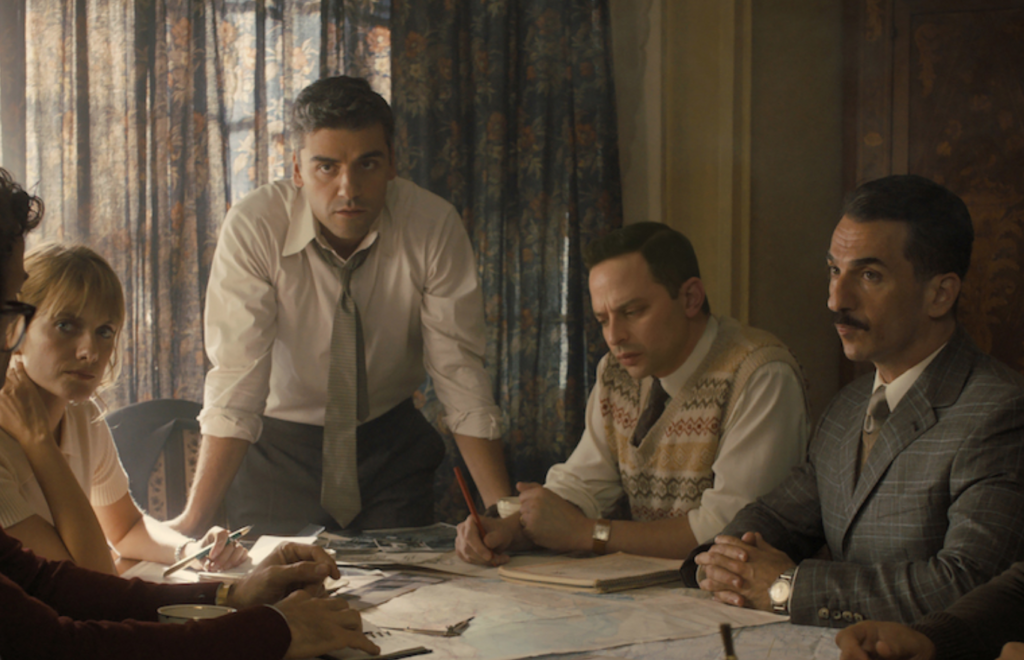
Operation Finale is based on a true story and follows the thrilling and exhausting hunt by Mossad officers to capture former SS officer Adolf Eichmann in 1960. The eight-person Mossad team discreetly travels to Argentina to find Eichmann with the hope of bringing him to Israel to stand trial.
From a historical perspective, Operation Finale tries to come to grips with the trauma that many Israelis felt about the Holocuast after the establishment of the state of Israel. On a more basic level, Operation Finale attempts to tell a story about a harrowing mission by clandestine operatives to capture a now-domesticated mass murderer.
- According to Haaretz writer Yechiam Weitz, “the Eichmann trial marked a critical milestone in the painful history of the Israeli attitude toward the Holocaust, victims and survivors alike. On a blistering hot day, May 23, 1960, when David Ben-Gurion announced to the Knesset and the Israeli public that Adolf Eichmann was ‘already in custody and would soon stand trial in Israel,’ the hearts of all Israelis skipped a beat.”
- In Anita Shapira’s 2012 book Israel: A History, she recognizes the significance of the Eichmann trial (and the hunt for him) as being part of a newfound openness toward “Holocaust memory [which] reinforced young Israelis’ connection with the real Jewish people, instead of an invented native one. … After the trial, young Israelis raised in the country began moving slowly but steadily back to their Jewish identity.”
- Daniel Gordis, in his 2016 book Israel, notes that “Eichmann’s trial would be the first time that Israeli society would publicly engage with the horrific details of the atrocity and with the public nightmares that many Israelis carried with them every day. … The new Israeli had wanted to start the Jewish narrative over, but the trial had made it clear to Israeli society — Jewish life could not be lived without a profound attachment to Jewish history, no matter how painful that might sometimes be.”
For more on the Eichmann trial and the Holocaust’s impact on Israeli society, check out the following on the CIE website:
Adolf Eichmann Trial Begins in Jerusalem
Hausner Requests Death Penalty for Adolf Eichmann
Knesset Passes Resolution for Creating Yom Hashoah (Holocaust Memorial Day)
Harrison Report Confirms Deplorable Conditions of DP Camps
Israel Accepts German Reparations
Our Boys (2019); 10 episodes; Hebrew and Arabic with English subtitles; HBO
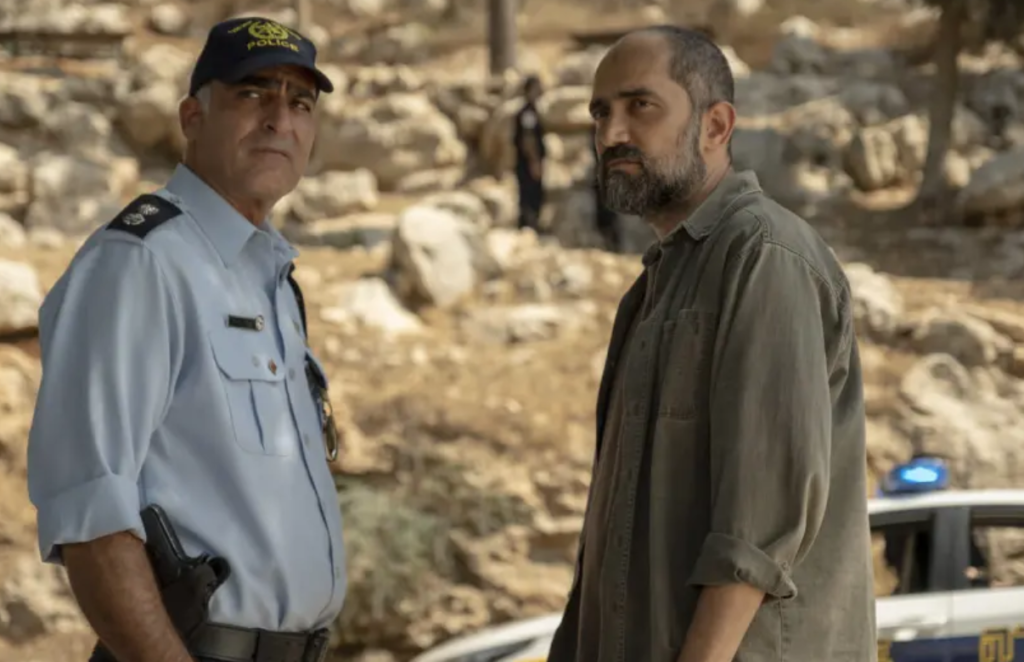
Our Boys is based on the events that led to the war in Gaza in 2014. The miniseries follows the investigation of Palestinian teen Mohammed Abu Khdeir’s murder and tells the story of all those involved, specifically the Shabak (Israel’s internal security agency) operators who attempt to unearth the killers of Abu Khdeir. This project, a co-production of HBO and Israel’s Keshet Studios, is a searing look into the lives and attitudes of Mizrahi Religious Zionists and Palestinians living in the East Jerusalem area. The miniseries was created by Israelis Joseph Cedar and Hagai Levi and Palestinian Tawfik Abu-Wael.
From a historical perspective, Our Boys tries to resurface the visceral feelings that have been expressed and sometimes repressed about the past decade of the conflict.
- Upon the show’s premiere, Yair Netanyahu, the son of Prime Minister Benjamin Netanyahu, wrote on Twitter that Our Boys “tells the whole world how the Israelis and Jews are cruel and bloodthirsty murderers, and how the Palestinians are badly done by and oppressed.”
- As the show carried on, Prime Minister Netanyahu wrote that “the propaganda channel 12 [owned by Keshet] has produced an anti-Semitic series called ‘Our Boys,’ that is distributed internationally and besmirches the good name of Israel.”
- Hussein Abu Khdeir, the father of the slain Palestinian teenager at the center of the story, said he and his wife, Suha, had seen some of the episodes and “cried a lot.”
- One hundred twenty Israeli families of soldiers and civilians killed by Palestinians signed a letter to HBO demanding an on-screen clarification that Palestinian terrorism is statistically more significant than Jewish terrorism. The key writer of the letter, Merav Hajaj, whose daughter, an army officer, was killed with three other soliders in a truck ramming in 2017, said, “The balance is not clear to someone viewing the show, who thinks ‘we murder them, they murder us.’ ”
For more on the conflicts between Israel and Gaza, check out the following on the CIE website:
The Spy (2019); 6 episodes; English; Netflix
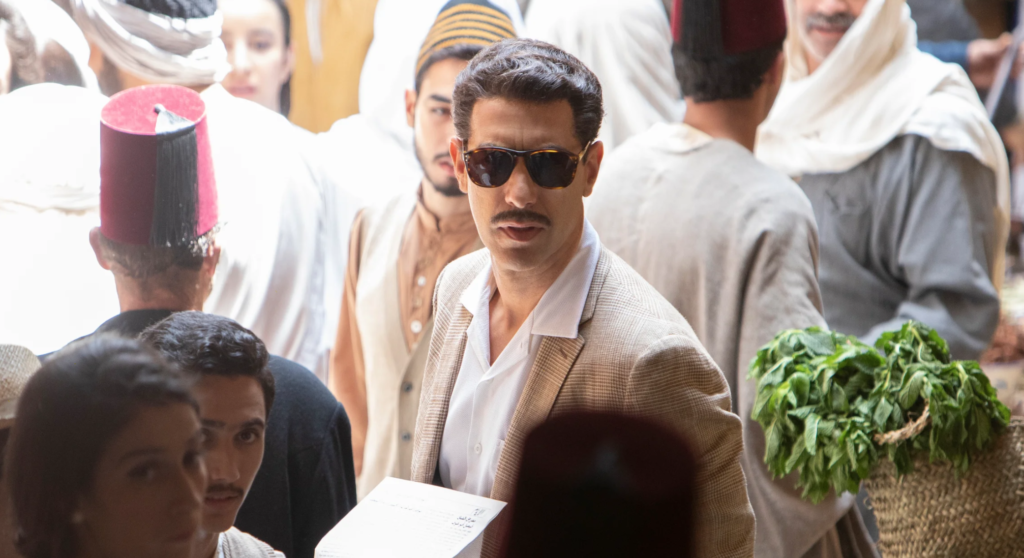
The Spy is quite simple. Based on a true story, the series follows Eli Cohen (played by Sacha Baron Cohen) from being a new Israeli immigrant from Egypt to being a deep-cover Mossad operative in Syria. The show takes place over many years and deals with how Cohen reconciles his love for Israel with his undercover identity within elite Syrian society.
From a historical perspective, The Spy explores multiple areas of Middle East history. On an Israeli level, it shows the struggles of Mizrahi immigrants to integrate into Israeli society. It also shows how fragile Israel’s place in the Middle East was in the 1950s and 1960s before the Six-Day War. Lastly, The Spy gives an inside look at the coup d’etat against Syrian President Nazim al-Kudsi.
- In Yaron Shemer’s 2013 book on Mizrahi cinema in Israel, he notes that in the early years of Israel there was ample “discrimination against Mizrahim in housing policies, employment, and education” as the Mizrahi community faced “cultural displacement and political subjugation.” With Israel’s population more than doubling from 1948 to 1951, Mizrahim were a new force in Israeli society. Yet, as Shemer argues, “many of the [Mizrahi] immigrants realized that the promised land of their forefathers had turned out to be, culturally speaking, a new exile.”
- Levi Eshkol, the Israeli prime minister during the Six-Day War, credited Cohen’s intelligence gathering with saving countless Israeli lives and “having a great deal to do” with Israel’s victory.
- Israel “took a lot of ideas from the Soviet-style of playing the spy game,” in sending out citizens on long-term spy operations where they had to adopt false identities, says Dan Raviv, author of Spies Against Armageddon, a history of Israeli intelligence. One thing that helped Israel in this case was that Cohen came from an Arab country and spoke Arabic fluently. Raviv argues that “Israel in the 1960s was just a master at taking advantage of loose [immigration and border technology] systems in many countries.”
For more on Eli Cohen and Israeli intelligence operations, check out the following on the CIE website:
Eli Cohen Is Arrested on Charges of Espionage
Israeli intelligence-related content
Shtisel (2013-16); 24 episodes; Hebrew and Yiddish with English subtitles; Netflix
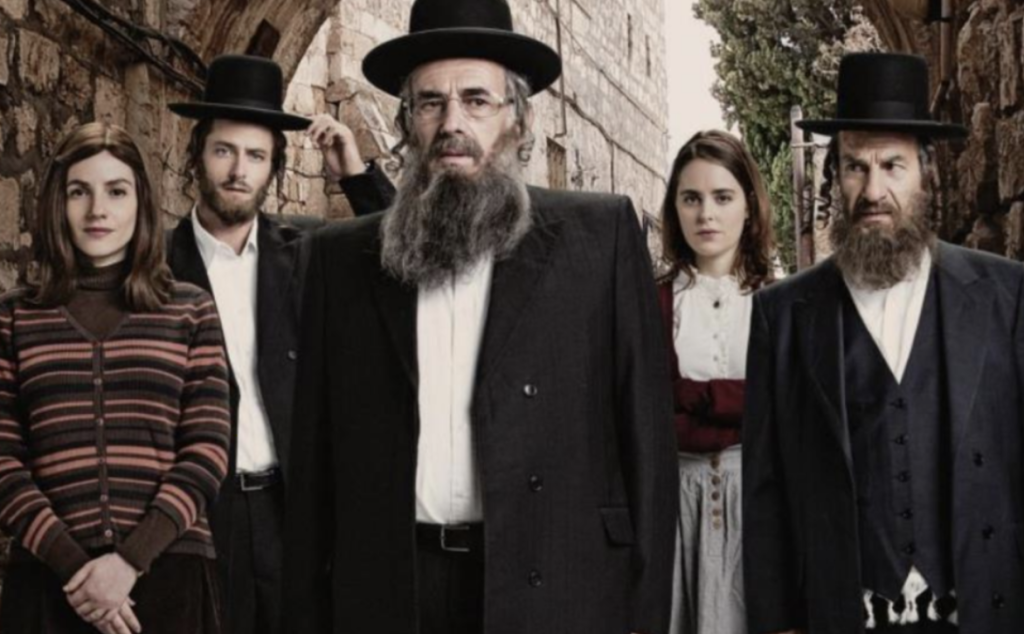
Shtisel follows the lives of a Haredi family in Jerusalem still reeling from the death of their matriarch. The series premiered in June 2013 on Israeli channel Yes Oh and gained instant critical notoriety. It won many Ophirs, the Israeli Emmys, including Best Drama, Best Actor, Best Directing and Best Script in a Drama Series.
From a historical perspective, Shtisel does not try to do much. The point of the show, according to co-creators Yehonatan Indursky and Ori Elon, is to “write a true, clear-eyed view of what ultra-Orthodox life is really like.”
- In a 2014 article about Zionism in the 21st century, Yoel Finkleman writes that for Haredi Jews in Israel there is “ambivalence about Zionism, ambivalence about secular Jews, ambivalence about isolationism, ambivalence about Torah-only education, ambivalence about Israel’s multiculturalism. … Haredi ambivalence in Israel stems from the complexities of trying to implement dogmatic isolationism in the context of a modern, open Jewish society and from the odd situation of being economically and militarily dependent on a State the existence of which Haredi ideology opposes.”
- In a 2019 essay in The New Yorker, Ruth Margalit highlights something she found important: Shtisel is “not, like most other depictions of the Haredim, about the desire to leave the confines of their society but rather about the ordinary pains and joys of living within it.”
For more on Israel’s ultra-Orthodox community, check out the following on the CIE website:
Video Lecture: The Haredim and the State of Israel
Israel On Board Video: Haredim and the IDF
A Tale of Love and Darkness (2015); 1 hour and 35 minutes; Hebrew with English subtitles; Netflix
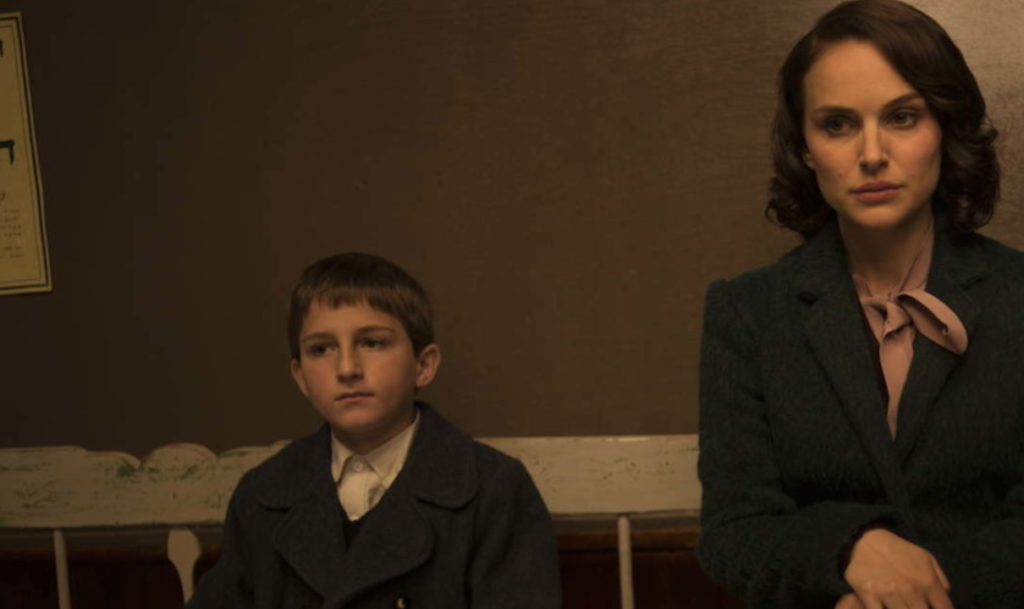
A Tale of Love and Darkness is set in the Jewish part of Jerusalem in the last years of Mandatory Palestine and the first years of independent Israel. Based on renowned Israeli writer Amos Oz’s 2002 book of the same name, it follows a young Amos as he navigates family life, growing up and the birth of the state. This movie is Natalie Portman’s directorial debut (she also stars as Fania, Amos’ depressed mother).
From a historical perspective, A Tale of Love and Darkness gives the audience only a taste of the surroundings and periods of the movie. It’s subtle, but the movie (like the book) hints at what life was like, what the mood was like Nov. 29, 1947, when the United Nations adopted a plan to partition Mandatory Palestine, what the world felt like after independence, and what the state was like in its early years.
- Since the 1920s, Palestine was ruled by the British Mandate, in a system that gave the British the responsibility for creating a Jewish homeland in the region. Amos Oz’s parents were among the Jews who immigrated to Palestine between World Wars I and II as a mass of Jewish newcomers “flowed out on to the desert,” as Time would later put it.
For more on Mandatory Palestine, check out the following on the CIE website:
U.N. General Assembly Resolution 181 (The Partition Plan)
David Ben-Gurion’s “Vision and Redemption”
Hatufim (Prisoners of War) (2009-2012); 24 episodes; Hebrew and Arabic with English subtitles; Hulu

Hatufim begins with the return of two soldiers who had been imprisoned for 17 years after being captured in Lebanon. The show explores the reintegration of the soldiers into a society which has made them national icons and into an interrupted family life, while working through the trauma of having been prisoners for so long. In 2010 it won the Israeli Academy Award for Television for Best Drama Series. The premise was adapted into the acclaimed Showtime series Homeland.
From a historical perspective, Hatufim dealt with the huge national trauma of Israeli prisoners of war. At the time of its premiere in 2010, multiple Israeli soldiers were missing in action (presumed captured) or were known to be held captive by such adversaries as Hamas and Hezbollah. The country was still reeling from a string of kidnappings in 2006. Three soldiers were announced missing that summer: Ehud Goldwasser, Eldad Regev and Gilad Shalit. In June 2008 the bodies of Goldwasser and Regev were returned to Israel in exchange for five Hezbollah terrorists. With little progress in finding Shalit, his family set up a protest tent in front of the prime minister’s house in 2009. When Hatufim came out in the midst of the national crisis surrounding Shalit, the show received record ratings. In 2011, Shalit was released in exchange for 1,027 Palestinian prisoners.
- In 2008, Bar-Ilan professor Danny Kaplan noted that Israel has an “intense preoccupation with its missing soldiers. … Efforts to retrieve the soldiers constitute both a site of conflictual politics and a source of wide-ranging civic engagement that takes the form of a depoliticized stance of solidarity.” Israeli prisoners of war “become the most intimately felt of all national heroes, epitomizing the ideological transformation of absent others into beloved brothers.”
- At the time of the show’s release, Shalit “was a symbol of national unity, the face on millions of posters and T-shirts, the reason for yellow ribbons tied to countless cars, the inspiration for songs, the cause of thousands of dedicated campaigners.”
- Shalit’s father, Noam, says his son “suffered a lot from these many years of captivity. … He was in total isolation, apart from his guards, for the whole time. He was kept in the dark except for a few times when he was transferred from place to place, when he was blindfolded. Sunlight was a shock for him. … He’s told us he had some interaction with his guards. They weren’t the people who kidnapped him, they were soldiers obeying orders. But there were conversations.”
For more on Gilad Shalit and Israeli prisoners of war, check out the following on the CIE website:
Israel Swaps 430+ Prisoners for Man, 3 Bodies
Operation Pillar of Defense Begins
Fauda (2015-); 36 episodes; Hebrew and Arabic with English subtitles; Netflix
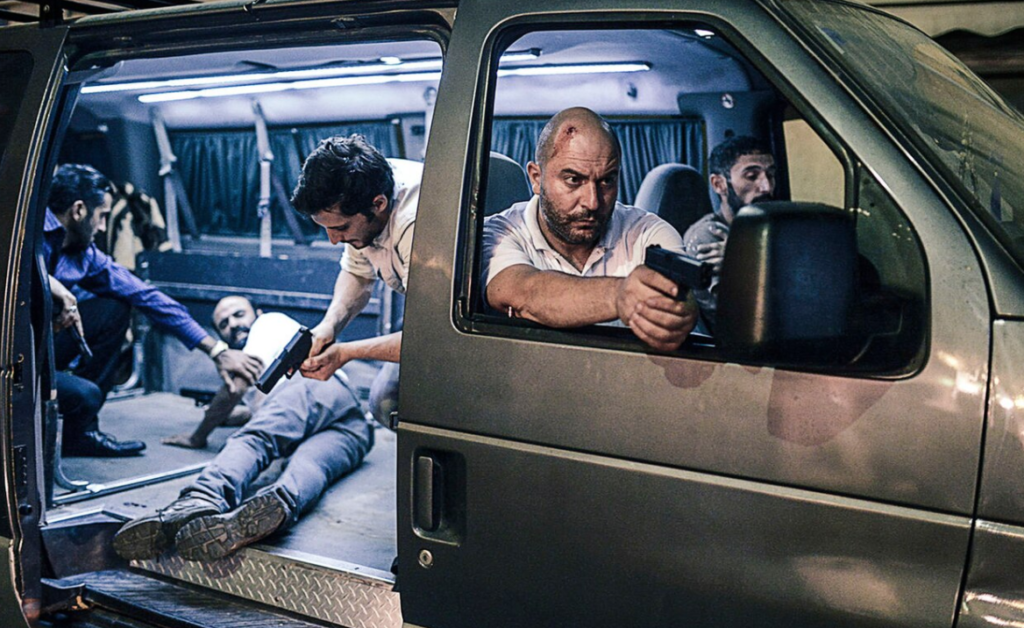
Faudaportrays a Mista’arvim unit in the IDF as it pursues terrorists. Mista’arvim units are special counter-terror units whose members are capable of posing as Palestinians to help apprehend suspects. It is an intense and action-packed show whose popularity has risen since it began airing on Netflix. Named one of the best shows of 2017 by The New York Times, Fauda was an international hit. In 2018, BDS supporters urged Netflix to terminate the show. Fauda has won 17 awards at the Israeli Academy Awards, including Best Drama Series twice. Season 3 premieres on Netflix on April 16, 2020.
From a historical perspective, Fauda is much more contemporary than anything else on this list. It is set in the present, and many of its nuances (highlighting intra-Palestinian political disagreements or using certain technology) would not make much sense in previous years.
- Avi Issacharoff, one of Fauda’s co-creators, says, “A major theme in Fauda is the occupation. … We’ve seen terrible things that the Israeli side is doing during the show, and for some reason they’ve been missed [from TV].”
- Issacharoff, in an interview with NPR, says Israelis “don’t see prime-time TV shows that are dealing with the Israeli-Palestinian conflict. And if to be honest, it’s a very boring issue. It’s happening every day outside your window or outside your neighborhood. So why would you — why would you like to go and see a TV show about that? It’s terrible. … One of the biggest challenges [is] to show the [Israeli] public the other side, showing [a Palestinian] as not a demon, not demonizing him as many of the media outlets are trying to do.”
- Yasmeen Serhan, a Palestinain writer for The Atlantic, notes that “Fauda doesn’t ignore the Palestinian perspective. … [Fauda]’s creators avoid portraying Palestinians as some homogenous other. … [It] also highlights the inherent power imbalances between Israelis and Palestinians.”
For more on Israel’s special units as well as some context about the history of television in Israel, check out the following on the CIE website:
Analysis: The Widening Military-Political Gap in Israel
Analysis: The Technology That Could Save Us From Deep Fake Videos
